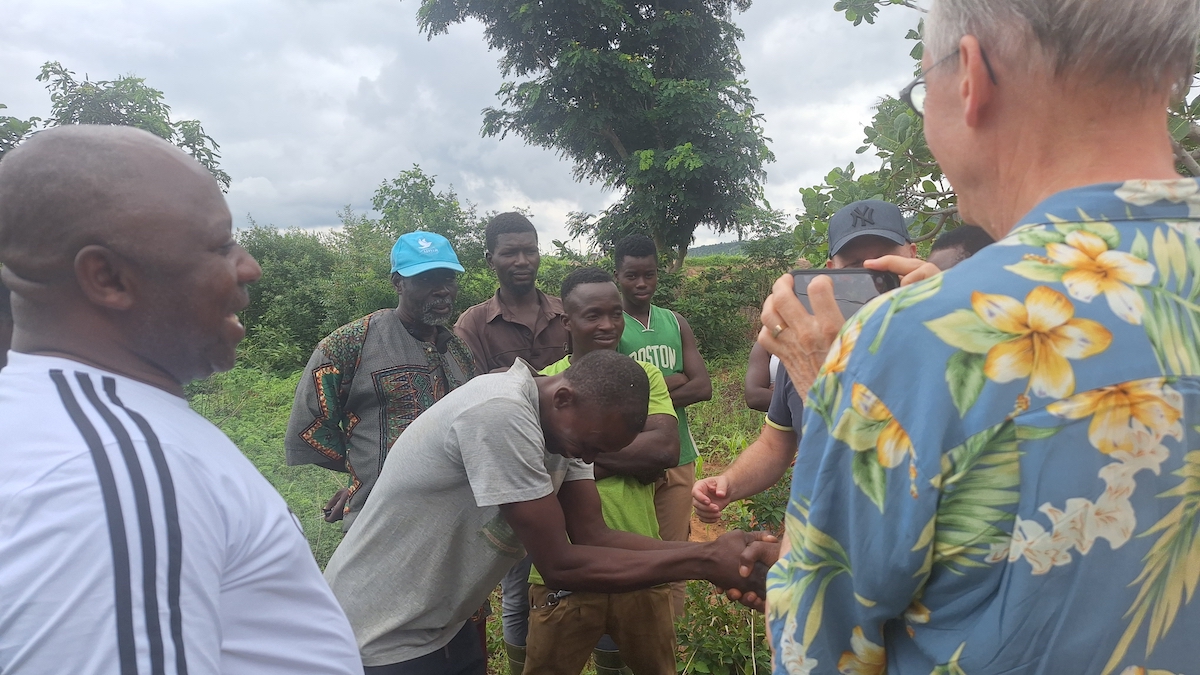Summary
Our bamboo project in Togo prioritizes biodiversity, land restoration, and ecosystem recovery—placing climate and ecological goals ahead of economic
Bamboo, Biodiversity, and the Monoculture Question: Why Our Project in Togo Is Different
Bamboo has earned a reputation as one of the most sustainable plants on Earth. Its rapid growth, ability to regenerate after harvesting, and potential to restore degraded land make it a powerful tool for climate restoration and rural development. Yet, some articles and commentators raise concerns about the risks of bamboo monoculture—large-scale cultivation of a single species.
While these concerns may be valid in certain contexts, they do not apply to our project in Togo. Here’s why.
Not Forest Clearing – But Land Restoration
Bamboo plantations in Asia have sometimes been criticized for replacing natural forests. That is not the case in Togo. Our planting sites are not forests at all—they are former agricultural lands, often partially cultivated or simply unused due to the limited capacity of local communities to farm them effectively. By introducing bamboo, we are not destroying ecosystems; we are bringing underutilized land back into productive use in a sustainable way.
Natural Soil Enrichment
One of bamboo’s unique features is its constant cycle of leaf fall. These fallen leaves naturally enrich the soil with organic matter and nutrients, rebuilding fertility over time. In addition, we will produce **biochar** from bamboo residues and organic waste, which will be added back into the soil to further increase fertility, improve water retention, and store carbon for the long term. Rather than depleting the soil, bamboo cultivation improves it—creating the foundation for healthier ecosystems in the long run.
No Pesticides Needed
Unlike many monoculture crops, bamboo does not require chemical pesticides. It is naturally resilient, and our cultivation methods ensure that we grow bamboo without harmful inputs. This aligns with our commitment to sustainable, chemical-free agriculture.
Preserving Large Trees and Biodiversity
Within our bamboo plots, we are committed to preserving mature trees. These trees provide habitats for birds and other wildlife, helping to maintain biodiversity within and around the plantations. Bamboo does not prevent coexistence with trees—in fact, it complements them.
Weed Suppression Through Canopy, Not Chemicals
Another ecological benefit of bamboo is its ability to suppress weeds naturally. This does not come from its root structure, but from the dense shade its canopy provides, which limits sunlight reaching the ground. As a result, weeds struggle to grow, reducing the need for herbicides.
Food Production in Early Years
During the first two to three years, while bamboo plants are still small, local farmers will be able to grow food crops among the young shoots. This provides immediate food security and income until the bamboo matures.
Agroforestry and Intercropping
Our program includes agroforestry and intercropping practices. In the first two to three years, while bamboo plants are still small, local farmers will be able to grow food crops such as vegetables among the young shoots. Once the bamboo matures, intercropping will continue mainly with large trees (such as fruit or shade trees) alongside the bamboo. This phased approach reduces pest risks, diversifies farmer income, and preserves biodiversity over the long term.
Responsible Land Management
We will apply biochar from organic bamboo residues to the soil, returning carbon and organic matter, supporting microorganisms, and preventing soil degradation.
Biodiversity Corridors
We will establish green buffer zones with native vegetation, allowing beneficial insects, birds, and wildlife to thrive alongside bamboo plantations.
Long-Term Vision
The Togo project sees bamboo not as a monoculture, but as the economic and ecological backbone of a diverse system: renewable energy, panel and furniture products, local agriculture, and water solutions.
A Responsible Model for Africa
Our approach in Togo shows that bamboo monoculture does not have to mean ecological harm. With careful land selection, soil-enriching practices, zero pesticide use, preservation of existing trees, production of biochar, interim food production, intercropping, and biodiversity corridors, bamboo cultivation can be a force for regeneration rather than degradation.
Bamboo has the potential to transform underutilized landscapes, provide livelihoods, and contribute to climate restoration. Fundamentally, our project is designed as a solution for climate restoration and ecosystem recovery, with economic benefits considered a secondary priority. Maximizing economic gains is important, but our guiding principle is to place ecological and climate goals first.
But as with any crop, the outcome depends on how it is grown. Our project in Togo is designed not just to avoid the mistakes made elsewhere, but to set a new global standard for responsible bamboo cultivation.

